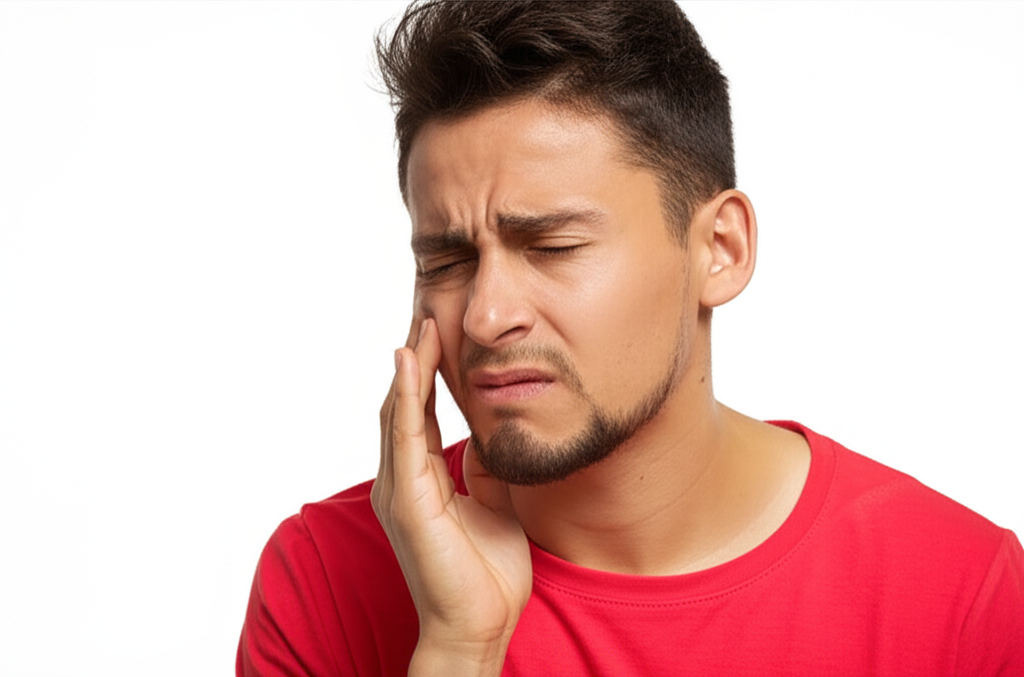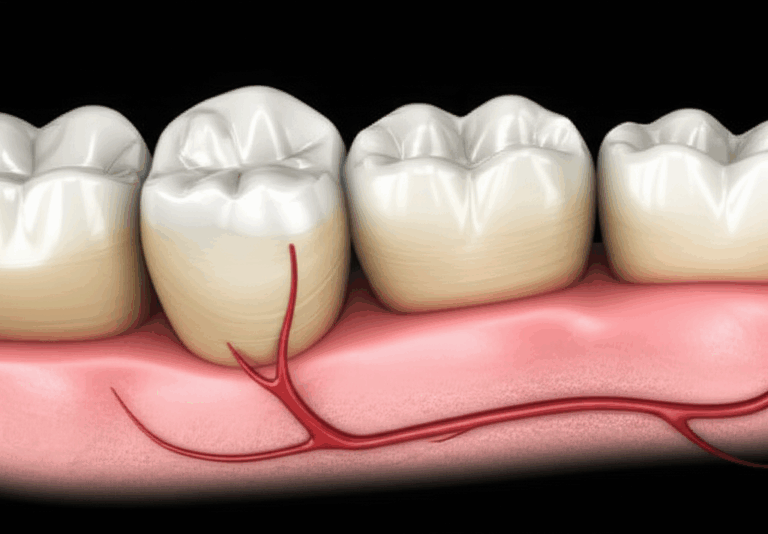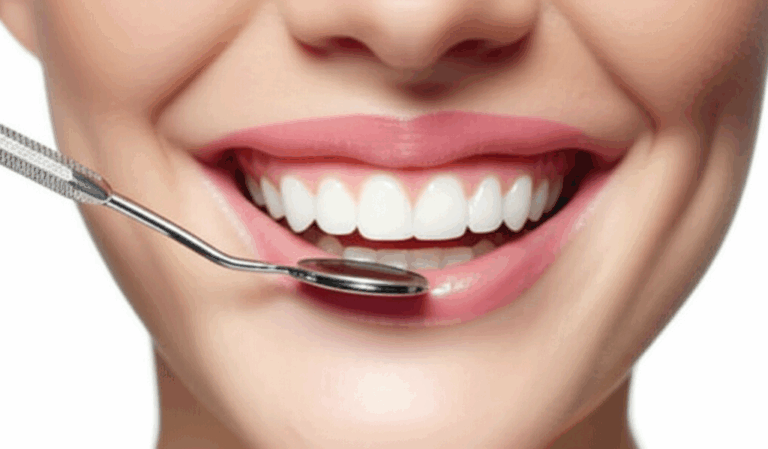
Does Keto Cause Dental Problems? Unpacking the Oral Health Impact of the Ketogenic Diet
Are you worried that the keto diet might hurt your teeth? You’re not alone. Lots of people wonder if “keto breath,” dry mouth, or even cavities could sneak up on them when eating low-carb. This article will answer your questions, show what the real risks are, and, best of all, give you easy ways to keep your mouth healthy—whether you’re new to keto or you’re already a fat-burning expert.
Table of Contents
- What Is the Keto Diet and How Does It Affect Your Mouth?
- Why Do People Get Bad Breath on Keto?
- Is Dry Mouth a Real Problem on Keto?
- Does Keto Cause Tooth Decay or Cavities?
- How Important Are Vitamins and Minerals for Teeth on Keto?
- Does Keto Help Prevent Gum Disease?
- Is Keto Good or Bad for Enamel and Sensitive Teeth?
- Simple Tips for Keeping Your Teeth Healthy on Keto
- When Should You See a Dentist on Keto?
- What Are the Benefits of Keto for Oral Health?
- Quick Questions & Answers
- Summary: What You Really Need to Remember
What Is the Keto Diet and How Does It Affect Your Mouth?
Let’s keep it simple. The keto diet means you stop eating most carbs. Instead, you eat more fats and some protein. This puts your body into something called ketosis. Your body starts burning fat for energy and makes things called ketones.
But what does this do to your mouth? When you change your diet—like switching from sugar and bread to a lot of avocado and eggs—your mouth feels it too. Saliva might be more or less than before. The pH level (how acid or not your mouth is) also can change. Even the tiny world of germs in your mouth (the oral microbiome) changes.
If you don’t pay attention? These changes can lead to problems like keto breath, dry mouth, or even gum problems. But there’s a good side! A diet with less sugar means fewer cavities and less for bad germs to eat.
Here’s what we’ll go over: We’ll break down the biggest keto and mouth health worries, how to fix them, and some benefits you probably didn’t know about.
Why Do People Get Bad Breath on Keto?
You might have heard about “keto breath.” It can surprise people who start keto. Why does it happen? When you burn fat, your liver makes ketones. One of those, acetone, comes out in your breath—so you might smell fruity or like metal.
How long does it last? For most people, this weird breath only lasts a week or two (what some call the “keto flu” time). For others, if you stay really low with your carbs, keto breath can hang around until your body gets used to it.
Tips to Stop Keto Breath:
- Drink lots of water. Sipping all day helps flush out ketones and keeps breath fresh.
- Brush and floss more often. Good mouth care is your first line of defense.
- Scrape your tongue. Food bits and germs hide on your tongue and make breath worse.
- Chew sugar-free gum with xylitol. Xylitol helps fight germs and keeps your mouth wet.
#### Table: Causes and Solutions for Keto Breath
| Cause | Solution |
|---|---|
| Acetone in breath | Drink more water, breathe through your nose |
| Bad mouth care | Brush, floss, scrape your tongue after meals |
| Dry mouth | Chew xylitol gum, use mouth rinses |
Want more on how food can change your breath and teeth? Check out this teeth health article.
Is Dry Mouth a Real Problem on Keto?
Yes, dry mouth (people also call it xerostomia) is pretty common when you start keto. Why? Keto can make your body lose more water and minerals. With less saliva, your mouth can feel sticky or sore, and germs can grow more.
Why Is Dry Mouth Bad?
- Cavities: Saliva helps protect your teeth. Without it, acids can hurt your enamel.
- Gum problems: Gums can bleed or hurt.
- Bad breath: Without saliva, food bits and germs stick around longer.
How Can You Fix It?
- Drink water a lot—even if you’re not thirsty.
- Keep up on minerals. Use supplements or foods with potassium, sodium, and magnesium.
- Suck on sugar-free mints or chew xylitol gum.
- Saliva helpers can be bought if your mouth is super dry.
If your mouth feels tight, your tongue is dry, or you see new sores, don’t ignore these. Keep your mouth’s pH balanced and your mouth wet for better teeth.
Does Keto Cause Tooth Decay or Cavities?
A lot of people worry keto might hurt their teeth or cause decay. But here’s what the science says—sugar is the main food for the germ (Streptococcus mutans) that causes tooth decay and plaque.
Because keto takes out sugars and most carbs, you’re really giving germs less food. Also, no sugar means less tartar and it’s easier for your teeth to fix themselves (remineralization).
So, does keto cause cavities? Actually, it’s the other way around! Keto can help stop these problems, if you keep brushing and taking care of your teeth.
But there’s one thing. If you always have dry mouth, or you don’t drink enough, you could have more problems.
#### Table: Diets and Cavity Risks
| Diet Type | Cavity Risk | Why? |
|---|---|---|
| Standard Diet | High | Lots of sugar for germs |
| Low-Carb/Keto | Low | No sugar = less food for germs |
| Not drinking water | Higher | Dry mouth, less saliva |
So keep brushing, flossing, and drinking water, and you’ll get the tooth-boosting power of keto.
How Important Are Vitamins and Minerals for Teeth on Keto?
Your teeth and gums need minerals and vitamins like C, D, and K2 to stay strong. On keto, if you don’t eat many greens, dairy, or forget supplements, you could end up missing calcium, magnesium, or vitamin C.
Why Does This Matter?
- Weak enamel: Not enough calcium or magnesium makes your enamel weak and teeth feel sore.
- Bleeding gums: Vitamin C helps stop gum problems (like gingivitis).
- Bone health: Teeth roots rest in bone, which needs vitamin D, K2, and calcium.
Tips So You Don’t Miss Stuff on Keto:
- Eat lots of green veggies (spinach, kale, broccoli).
- Add seeds and nuts to get more magnesium.
- Pick dairy or things with added calcium and vitamin D.
- Think about supplements, but talk to your doctor or dentist first.
Make good food picks so your mouth gets what it needs! Interested in how dental labs can fix broken teeth or help after you lose teeth? Check out this crown and bridge lab.
Does Keto Help Prevent Gum Disease?
Gum disease, sometimes called gingivitis or the worse kind, periodontitis, happens when germs grow in your mouth and your gums get swollen. High blood sugar makes this worse. People with diabetes are at more risk.
Keto helps lower blood sugar, so it can really help folks with diabetes or blood sugar trouble to keep their gums healthier. Some early studies even suggest keto’s anti-swelling power helps the mouth, making your gums less sore.
But, It’s Not Magic
If you don’t brush, floss, or skip dentist visits, gum problems can still show up. Also, if you don’t get enough vitamins like C or K2, your gums might not heal.
Main point? Keto, plus good mouth habits, work best together.
Is Keto Good or Bad for Enamel and Sensitive Teeth?
Tooth enamel is the shield for your teeth. It needs minerals, saliva, and the right pH to stay strong. People sometimes worry that keto may hurt their enamel, especially if they already have sore teeth.
Here’s the truth:
- Keto means less acid from sugar and soda. This helps enamel.
- But, if your mouth is dry or the pH changes a lot, sometimes there’s a small risk for more acid and enamel trouble.
How Do You Keep Enamel Strong on Keto?
- Brush with fluoride toothpaste two times every day.
- Drink water often so your mouth doesn’t dry out.
- Don’t snack on vinegary or really sour things all the time.
- See your dentist regularly—they can spot any enamel problems or help with sore teeth.
If you ever get new tooth pain or your gums start to pull back, go get it checked. Being careful—good food, lots of water, and cleaning your teeth—will protect your teeth’s shield.
Simple Tips for Keeping Your Teeth Healthy on Keto
Here are easy tips anybody can use to have healthy teeth while eating keto:
- Water keeps saliva moving, stops dry mouth, and helps flush out ketones.
- Brush with fluoride toothpaste, floss daily, scrape your tongue, and use alcohol-free mouthwash.
- Get enough sodium, magnesium, and potassium. Sugar-free electrolyte drinks help your body and mouth.
- Don’t just eat bacon. Get lots of leafy greens, seeds, nuts, and fish.
- Even great habits can miss things—a china dental lab dentist will help spot stuff early.
- Xylitol helps fight off bad germs and stops cavities.
It’s not hard—but you do need to pay attention.
When Should You See a Dentist on Keto?
Sometimes, things aren’t normal—don’t just wait and hope it goes away. Call your dentist quickly if you have:
- Dry mouth that won’t stop
- Bad breath or a weird taste that sticks around
- New tooth pain or sensitivity
- Bleeding or sore gums
- Mouth sores, white patches, or just anything strange
Remember, anyone on any diet can get mouth problems. Keto just makes you pay more attention to your mouth. Catching things early means you save pain, time, and money.
What Are the Benefits of Keto for Oral Health?
You might be surprised how many good things keto has for your teeth and gums!
Want even more info on staying healthy? Check out this dental care guide.
Quick Questions & Answers
Q: Will I get more cavities on keto?
A: Very unlikely. Keto cuts sugar, the main reason people get cavities. If you brush and floss, your risk is even lower.
Q: How can I fix keto breath?
A: Drink more water, brush, scrape your tongue, and chew xylitol gum. For most people, keto breath goes away after a while.
Q: Can keto cause gum disease?
A: Not directly. Good habits and enough vitamins (especially C and D) plus dentist visits will protect your gums.
Q: Should I take supplements on keto for my teeth?
A: Only if you aren’t getting enough calcium, vitamin C, magnesium, or D from food. Most people can get all they need with a good keto diet.
Q: I have dentures or a dental implant. Is keto okay?
A: Yes! Just keep your mouth clean and see your dentist if you worry. If you need custom dental work, a removable denture lab can help.
Summary: What You Really Need to Remember
- Keto won’t directly cause mouth problems, but dry mouth or bad breath can show up.
- Less sugar means fewer cavities.
- Don’t forget water or minerals—stay hydrated and keep up your electrolytes.
- Vitamins C, D, K2, and calcium are super important for your teeth and gums.
- Brush, floss, scrape your tongue, and see the dentist two times a year.
- If you notice ongoing problems—see a dentist.
- Good habits + keto = strong, healthy teeth for life.
References:
- American Dental Association (ADA) guidelines for mouth care.
- Studies on cutting carbs and cavities (see “Keto and Dental Caries,” Journal of Clinical Oral Investigations, 2021).
- “Eating habits and mouth health,” The Lancet, 2022.
- Stories and experiences from low-carb communities.
If you want more about caring for your teeth, check the latest tips and studies in these teeth information articles. Your smile will thank you!








